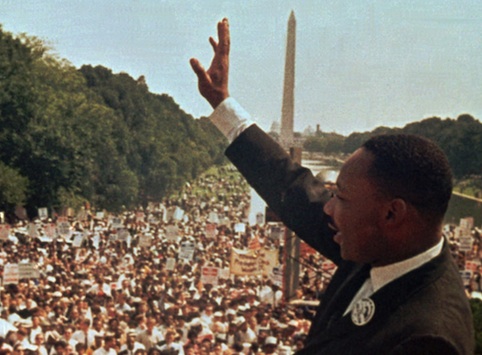A senior GOP lawmaker said restoring the Voting Rights Act is his top legislative priority for the rest of the year while other Republicans talked about ways to reach out to minority voters at a GOP luncheon commemorating the 50th anniversary of the March on Washington.
The luncheon, hosted by the Republican National Committee (RNC), featured political, civil rights, and community leaders discussing the legacy of the civil rights movement.
Rep. James Sensenbrenner (R., Wis.), former chairman of the House Judiciary Committee and a longtime champion within Congress of the Voting Rights Act, passionately told the capacity crowd about his support for civil rights legislation like the Voting Rights Act.
Sensenbrenner said that support within Congress for restoring the Voting Rights Act is bipartisan. Earlier this year the Supreme Court struck down part of the law that requires federal approval of any voting law changes certain states make.
RNC chairman Reince Priebus said that the Republican Party needs to pursue all voters, including racial minorities who traditionally vote overwhelmingly for the Democratic Party.
"Our party’s beginning was born around issues of civil rights and equal opportunity," Priebus said. "Our party has a rich, proud history of equality, freedom, opportunity. But we don’t tell our story anymore."
"It was not a mistake that the March on Washington was in front of the Lincoln Memorial," said James Kemp, president of the Jack Kemp Foundation.
The speakers said that much has been accomplished in the last 50 years since the March on Washington and Martin Luther King, Jr.’s "I Have a Dream" speech.
"We have so much to thank God for today," said Robert Brown, who was at the original March on Washington and who is now CEO of the public relations firm B&C Associates.
"The years have been filled with anger, with torment, with death, and many, many successes," he said.
"I know what the billy club feels like on my head, and I know what the inside of a jail looks like, because I’ve been there […] but I also know what the mountaintop looks like," he said, referring to his time working in the Nixon White House.
The speakers celebrated the successes, but also lamented the current obstacles facing the black community.
Many of the problems facing black people in America are not limited to racial issues, said Robert Woodson, president of the Center for Neighborhood Enterprise.
He lamented the selectivity that certain civil rights leaders today take toward tragic events, loudly denouncing certain events while ignoring others.
"Dr. King, if anything, was morally consistent. […]We should not wait for evil to wear a white face before we get outraged," he said.
"Black Americans right now, young people—we lose 3,000 every six months. We have a 9/11 every six months," he said.
Woodson called on both political parties to work toward helping the poorest people in America.
"We never hear any talk about the conditions facing poor blacks and poor people in general," he told the crowd.
Priebus also called on the Republican Party to work for education reform.
"As Republicans, I think this is just one area where we can lead," he said.
Alveda King, the niece of Martin Luther King, Jr., said to cheers that she is a Republican, but noted the limits to party affiliation.
"So much transcends politics," she said.
